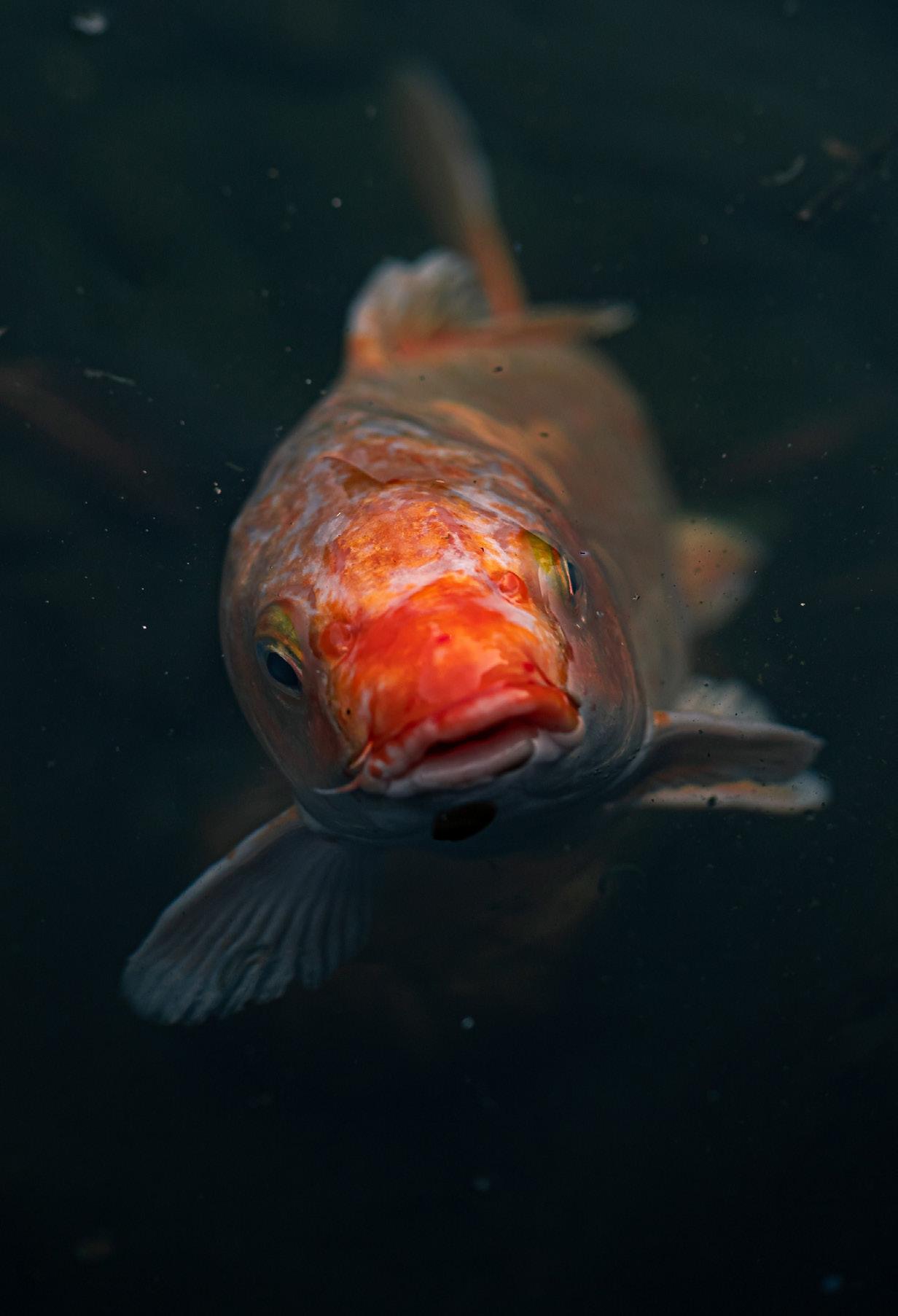4
ANIMAL WELFARE SUCCESSES After visiting our campus, MSc AWSEL student Pauline Braun noticed that our five campus carp had outgrown their small pond. With the support of fellow students and CAW lecturers, she launched a campaign to have them relocated to a much larger pond. A suitable lake was located at nearby Basingstoke Crematorium, and a submission to the University outlined current understanding of fish sentience, and the welfare benefits that would accrue from relocation to a larger space. Vice-Chancellor Professor Joy Carter and other senior managers enthusiastically supported the campaign, and the relocation was successfully undertaken in July 2020 by Winchester grounds staff. Said Maurice James, Head Gardener, “The relocation went very well, it was a very warm,
nice day. After having to drain at least half of the pond here, catching the fish went better than expected. After leaving the fish in their containers for approx. 20 minutes, they were all released without any hitches and swam away.” A check two weeks later revealed the fish to be swimming together as a group, and doing well. Pauline’s blog on this wonderful success story helped inspire others to consider fish welfare. She said, “Most of us studying on the MSc programme want to make the world better for animals, and by working together as a group with our lecturers and other University staff, we were able to bring about positive change, for the lives of these fish. “If you spot something that doesn’t seem right, where animals or people are suffering, then with the application of reasoned argument, and persistence, sometimes you really can make a difference.” Also with the support of Winchester estates and grounds staff, MSc student Carol Cook continued her very successful campaign of the previous year, managing to secure for the University, Bronze hedgehog-friendly campus status. Winchester became one of the first UK universities to achieve this, by completing the first stage of a national campaign to make university campuses hedgehog (and wildlife) friendly. Her team is now working toward Silver accreditation. In November, previous work by Prof. Andrew Knight resulted in some major successes for New Zealand’s animals. A New Zealand High Court judge has ruled that the government’s legalisation of extremely restrictive cages (‘farrowing crates’) for pregnant sows - the main confinement system used for around 15,000 – 20,000 pregnant New Zealand pigs, for decades - was illegal, along with mating stalls. This is the most significant legal development for animals in New Zealand, for years, and is expected to result in legal change to significantly improve the lives of New Zealand pigs. This follows Prof. Knight’s detailed report on this issue and the campaigns of partner





